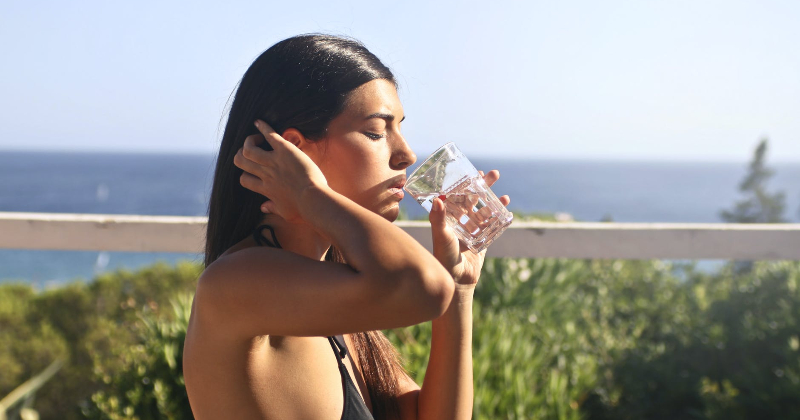Everybody knows that drinking an appropriate amount of water a day is very important. It significantly improves your health and overall feeling. The main question is not only why it’s so important to drink water but also how much?
There is no simple answer to the question about the amount of water necessary for daily intake, as scientists’ recommendations in this area have changed over the years. Also worth noting, that the amount of water needed for each person varies based on different factors.
In this article I’ll give you a brief conclusion on why you should hydrate regularly over the day and how much water you should drink based on your age, gender and other factors.
Regular hydration improves health
A human body of 60% is known to consist of water. Consequently, the wellbeing and physical survival of the body depends on regular water intake. You flush out all the bad things while sweating, crying and urinating. So it only makes sense you’d need to repair the lost water.
Each body cell, tissues and organs are based on a sufficient amount of water to function properly.
The role of water in the functioning of the body is invaluable.
Here are some indications of the importance of water for health:
- Water helps with regulating body temperature;
- It releases the body from harmful substances by flushing it through urination, sweating and intestinal function;
- It protects sensitive tissues;
- Moisturizes joints.
How much water should you drink per day
Insufficient intake of water leads the body to dehydration. This makes it difficult to function normally. Even a small dehydration is capable of significantly altering the physical performance of the body, which can be shown in a lack of energy, headaches and fatigue.
Every day, the human body loses water. In order for the body to function normally, the amount of water lost must be restored by taking a sufficient amount of water through the intake of drinks and water-containing meals.
In 2010, the European Food Safety Authority (EFSA) published an official water intake recommendation based on age and gender.
- For infants it’s 680ml – 1000ml of water per day.
- Kids aged from 9 to 13 – 1900ml for girls and 2100ml for boys.
- For teenagers, grownups and elders – 2000ml for women and 2500ml for men.
- For pregnant women – the usual 2000ml + 300ml extra.
Factors affecting water intake
Based on various factors and activities carried out during the day, the recommended amount of water intake may vary. Find out more about what affects it below.
Physical exercise
If physical activity (walks, swimming, exercising, playing etc) is carried out during the day, which results in sweating, the amount of water lost must be repaired. It is important to drink water during sports, before and after.
The climate
In the case of hot and moist weather, increased sweating may be possible, which requires additional water intake. The same applies to high height – if you are in the hills, for example, drink more water.
Condition of health
The body also loses water significantly during health problems – if there is fever, vomiting or diarrhoea especially. In this case, you should drink a lot of water and consult your doctor about the dehydration that has occurred. Other health problems, which include increased loss of water, include urinary infections and the formation of stones in the bladder.
Being pregnant or breastfeeding
Women who are pregnant or breast-feeding need to increase water intake during the postnatal period.
Listen to your body and you will know how much water you need

Listen to your body and you will surely know when to drink water and how much of it. Before you start to calculate the needed daily water intake, remember to not stress your body out.
Here are some tips that might help you find out if you really need to hydrate more than you usually do.
You are most likely to drink enough water if:
- You rarely feel thirsty;
- Your urine is pale yellow or, at best, colourless;
- A doctor has set up an individual plan for taking the amount of water that is exactly right for you.
To avoid dehydration, try to get yourself used to water drinking. It isn’t simple for everyone, yet try to make water your priority and choice of drink and your body will be grateful to you.
Recommendations on how to effectively take care of water intake:
- Drink one glass of water before and between each meal;
- Drink water before, after and during training;
- Drinking water if you are hungry – thirst often fools you by pretending to be hungry;
- Always keep a bottle of water next to you so you always have something to drink.
- Find the best water bottle for yourself so it’s comfortable and handy everyday.
For more tips, check out my other article Tips to remind myself to drink water.
I hope you enjoyed this article because I surely enjoyed looking up all this information! Hope it was helpful!

